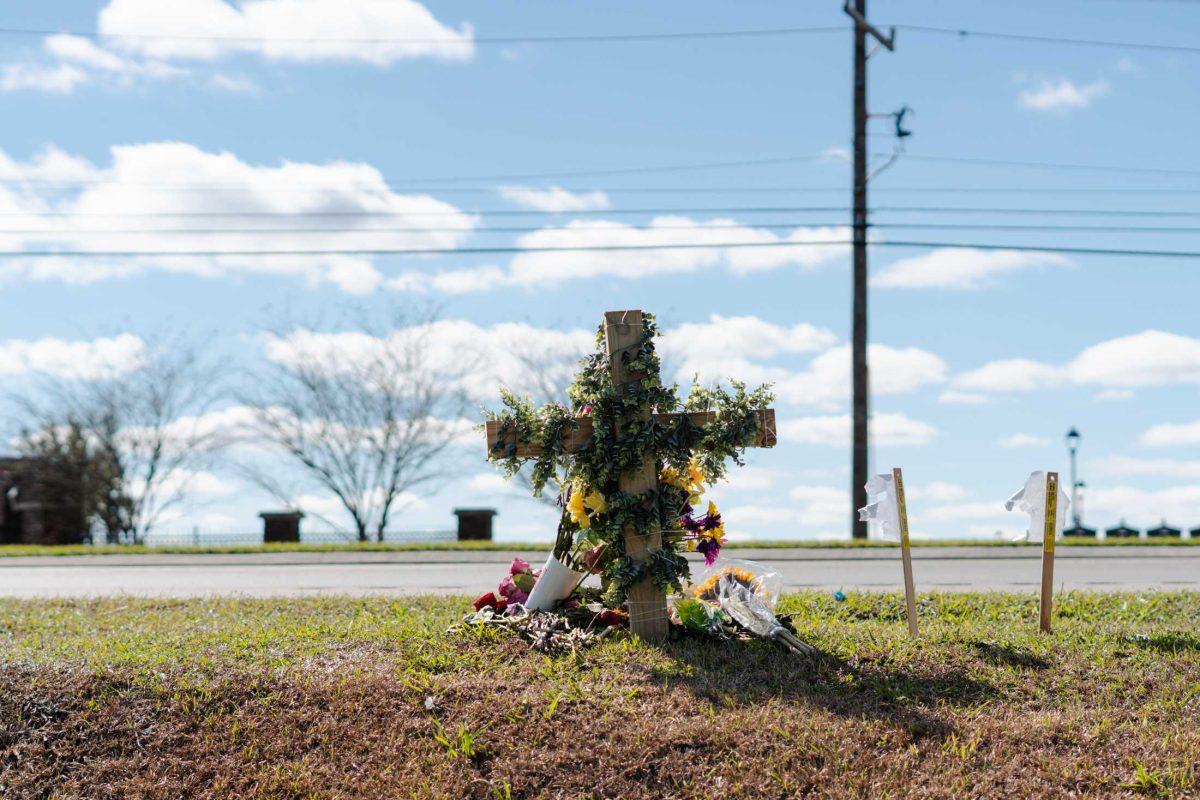LSU President William F. Tate IV sent an email to students Monday, Jan. 23, after a man and an unnamed minor were charged with third-degree rape amid an investigation into the death of LSU sophomore Madison Brooks.
He received prompt backlash from LSU students and sexual assault survivor advocates who said his finger-pointing at underaged drinking missed the core of the problem: sexual violence.
Tate responded in a column in The Advocate on Tuesday.
“I want to be real and honest and leave political correctness out of this conversation, because we must remove every barrier to creating change that will save lives,” he said.
He wrote that there were several evils at work in this case.
“We know the first. It’s sitting in parish prison as I write this,” he said in a nod to the arrests made in the Brooks investigation.
Kaivon Washington, 18, and a 17-year-old were charged with third-degree rape against Brooks, according to WBRZ. Two other men, Everett Lee, 27, and Casen Carver, 18, were charged with principle to third-degree rape, the news outlet reported.
Tate said that a second evil sustained the first: alcohol.
“Our students should be able to drink responsibly, to have fun, to simply be, without being hunted by predators, and enforcing the law is paramount to their pursuit of safe, fulfilling social lives.
“But evil people exist in this world, and they know that the purposefully cultivated environment at some bars allow predators to take advantage of our young people while their guards are down,” he wrote.
“That’s not blaming victims,” Tate continued. “That’s enabling criminals. And I won’t stand for it.”
He said “Tigerlands” exist across the country and that “we must intervene.”
“Tigerland isn’t the only problem we face, and targeting underage drinking isn’t the only solution we will offer,” he wrote. “Prevention requires us to address them all.”
A guest column from Morgan Lamandre, the president and CEO Sexual Trauma Awareness and Response, criticized the attention to alcohol in the aftermath of the rape charges.
“After the horrific rape and death of LSU student Madison Brooks, community conversations almost entirely revolved around alcohol and underage drinking,” she wrote. “LSU has seen several student deaths related to alcohol poisoning and hazing, but blaming her death on alcohol is a disingenuous deflection tactic. Had Madison been given a ride home by anyone other than rapists, she likely would have been brought somewhere safe and still be alive today.”
She said that alcohol is never the cause of rape but a way that perpetrators facilitate rape.
“LSU should be held accountable for contributing to rape culture in Louisiana, but our community must also move beyond conversations focused on the university,” she wrote. “When we focus solely on LSU, we are allowing ourselves to be distracted from creating the social change needed to end sexual violence in Louisiana.”
She said LSU is simply a symptom of the problem that is Louisiana, which she says is one of the worst states in the country to be a woman.
Risk-reduction methods are ineffective and victim blaming, she said, “allow[ing] perpetrators to continue to victimize as they move to another target.”
Instead, she said, Louisiana should focus on primary prevention, which includes teaching children about their bodies, boundaries, consent and pregnancy.
“I urge our legislators to take bold and swift action to address sexual violence in Louisiana,” she said. “It will take political courage, but it must be done.”





